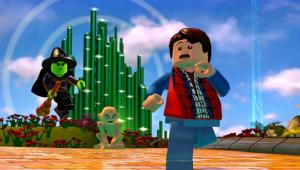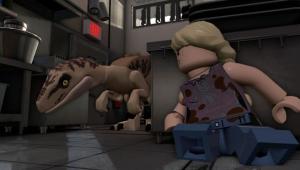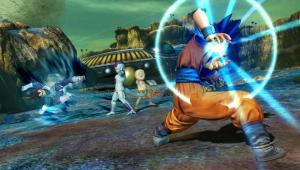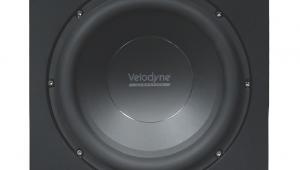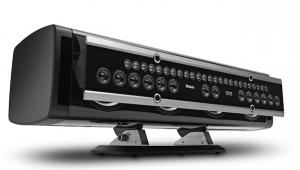Deus Ex: Human Revolution
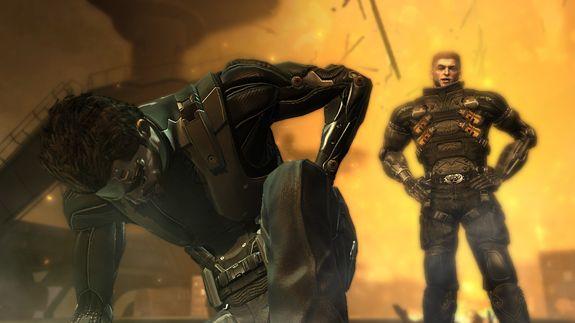
Dystopian, Blade Runner-esque futures are ten-a-penny in videogames. So it's hard not to feel a little jaded when yet another title turns up promising to take you into a perpetually overcast near-future version of our world, populated by sinister big-business types and shadowy conspiracies. But it's worth remembering that the original Deus Ex set the benchmark for the action-role-playing-game genre when it hit the PC at the turn of the Millennium. And, remarkably, this third entry in the series manages to match, if not top that lofty achievement.
Future noir
Set in the year 2027 (25 years before the events of Deus Ex) Human Revolution casts players in the role of Adam Jensen, head of security at Sarif Industries - a major player in the world of human augmentation. A military-style raid on the company's Detroit HQ (which acts as a short gameplay tutorial for players) results in the death of Sarif's top scientists and Jensen requiring urgent augmentation surgery to save his life. Returning to work sometime later, Jensen sets about uncovering the identities of those responsible for the attack and sets off on a globetrotting adventure to get his revenge.
So far, so ordinary. But there are any number of things that lifts this latest Deus Ex outing above the glut of other games you'll have played with similar storylines. First there's the quality of the writing itself. Yes, some elements of the story are a bit over-familiar, but the way the narrative is layered together keeps the game spiralling off into unexpected new directions, and the outstanding quality of the dialogue and the voice cast performing it ensures that the Deus Ex universe feels like a real world, packed with characters whose lives continue off-screen, not simply automatons whose only function is to chime up with a bit of handy exposition whenever the player enters the scene. Other games like Heavy Rain and L.A. Noire might have done more to experiment in this area, but as good as they were, neither managed anything as rich and diverse as Human Revolution's narrative, game world or the characters that inhabit it.
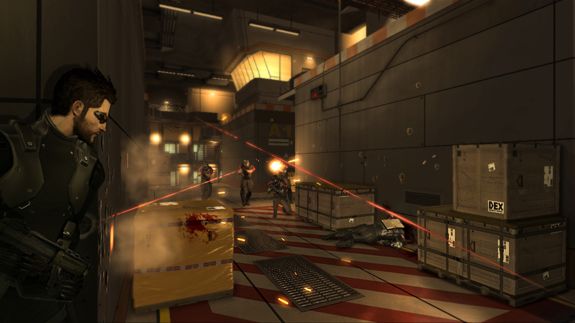
Man-sized air ducts
It also doesn't hurt that the world the game creates looks fantastic. Sure, some of the character models look a little over-stylised and take a bit of getting used to, but the locations they inhabit are both sensational to look at and utterly cohesive. Despite the odd decision to put so many man-sized air-ducts in every building you enter (maybe it's really, really warm in the future), these really do feel like buildings with a purpose and real-world function, not just the usual barely-disguised mazes for you to be ushered down. It's a true graphical treat, with a scale and sharpness to the sci-fi visuals that helps give the game a truly cinematic feel.
But above all else, it's the gameplay that truly lifts Human Revolution into the pantheon of videogame greats. Like the two games before it, this latest Deus Ex all comes down to choices - both in the moral path you take through the game and in the methods you use to achieve your aims. The latter is of particular praise. We've had great first-person-shooters in the past, and we've had great stealth games, but never before have I encountered a game that marries the two, very distinct styles so well. Each and every mission can be approached however you want.
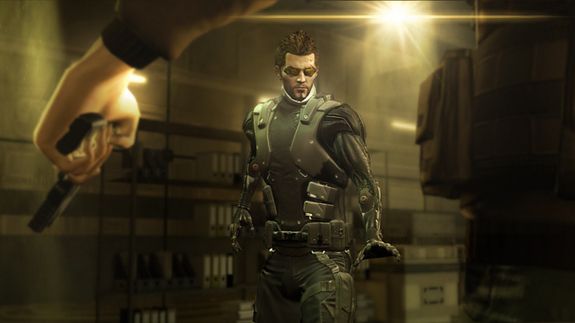
To kill or not to kill
At the most basic level you can run in all-guns-blazing or snoop around trying to get through undetected, but it's the way that the two modes often intersect, with even the most carefully laid plans going horribly wrong, but still giving you a way out through epic action scenes that put some Hollywood films to same (it doesn't hurt that the FPS engine is excellent, with precise controls, excellent enemy AI and some weighty weapon choices). No particular method is right or wrong in any given instance - indeed there's even an Achievement waiting to be found for anybody who plays through the game without killing anybody apart from the mandatory boss battles.
In amongst all of this comes a brilliant role-playing-game structure. Outside of some mission-specific locations, the game is primarily set across two distinctive hubs. And in true RPG structure on top of the main missions there are also plenty of distinctive side-quests to be sought out and completed - all in the hope of boosting your experience points. Which comes in damn handy, because another key RPG element comes in managing your growing collection of bodily augmentations. Once again, the option is up to you which particular skills and abilities to pursue, be it the ability to jump faster, turn invisible, hack more secure systems or even see through walls.
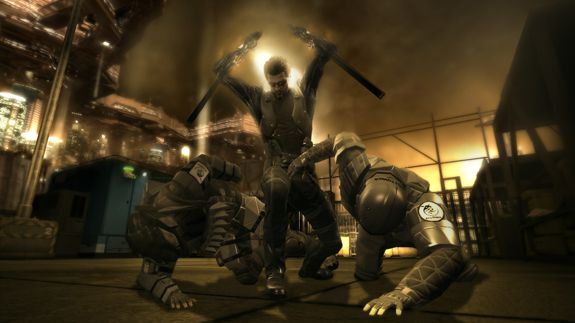
Re-play potential
The fact that you're unlikely to ever unlock all of the possible combinations in one run through the game also has the advantage of extending its lifespan (not that it's a short game, by any measure) as, like me, you'll undoubtedly want to play through it again experimenting with different tactics and augmentation combinations. And like previous games in the series, your decisions throughout the game also affect the ending you get to see, meaning there's yet another reason to give it another go.
So is Human Revolution perfect? Of course not. Some of the boss battles are ridiculously hard and the hacking mechanism can be a bit cumbersome at times. Although the former can an least be remedied with the adjustable difficultly level available at any time during the game. It's also worth noting that this Xbox 360 version also suffers from some hideously long load times between locations. But even with these niggles, this latest journey into the shadowy future-noir universe of Deus Ex stands proud as arguably the best game in the series to date, and unquestionably one of the best games of the year.
Xbox360 (version tested), PS3, PC, Square Enix, £50 approx, On sale now
HCC VERDICT: 5/5
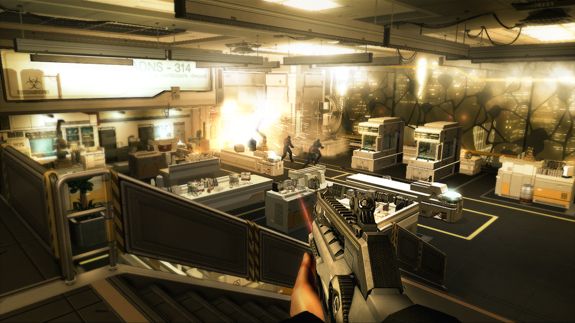
 |
Home Cinema Choice #351 is on sale now, featuring: Samsung S95D flagship OLED TV; Ascendo loudspeakers; Pioneer VSA-LX805 AV receiver; UST projector roundup; 2024’s summer movies; Conan 4K; and more
|

